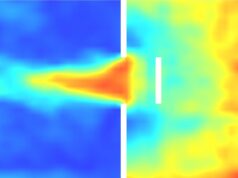Slowing down food intake is the key to losing weight without feeling deprived. This is also the reason why we are moving from eating 3 meals a day to eating one big meal a day. When you look at the big picture, it becomes clear that the key to weight loss is ensuring that we don’t go over our calorie intake. When we eat too much food, the body burns through it quickly, which leaves it feeling hungry soon after. Hunger is the body’s way of telling us that it has consumed too many calories.
For a long time, I’ve found myself going out with friends after a heavy night of drinking. Usually, we end up ordering an unhealthy meal that I’m conflicted about eating. One of my friends always orders pizza, which I hate, but I always end up eating it because I’m tired and or stressed. Another tends to order a burger while I tend to order a salad. Sometimes I’ll go for a wrap with a side of chips, but I always end up eating it, as well.
The idea of a slow meal is one that many people are still skeptical about, and for good reason. While eating slowly can help you make healthier food choices by giving you more time to think about what you’re eating, the simple act of slowing down can also make it harder for you to stay on track.
Slow eating has many advantages, including improved digestion, hydration, weight reduction or maintenance, and higher meal pleasure. Meanwhile, rushing through meals causes poor digestion, weight gain, and decreased pleasure. The message is clear: Eat more slowly to enhance your health and well-being.
++
You digest food more efficiently if you eat slowly. You have an easier time losing or maintaining weight. Each meal, however, makes you feel more content.
When you hurry your meals, on the other hand, your digestion suffers. Meals are a source of anxiety. Also, each meal may appear to end too quickly, which makes you want to eat more. Alternatively, you might “overshoot the runway,” completing the meal before your natural satiety signals kick in, and finding yourself unexpectedly — and uncomfortably — full.
It’s simple: Slow down your eating and you’ll notice a difference in your health and well-being.
The importance of eating slowly
We live in a hurried, distracted, and overworked culture. The majority of individuals in North America eat quickly. Extremely quick. We seldom take the time to enjoy our meal… or even fully chew it.
We all hurry our meals, regardless of who we are. Even if you have a Master’s degree in nutrition and a long list of other nutrition qualifications. I’m the same way.
I’ve wanted to gain weight for a long time. I was able to do this by eating fast. I could sneak in a lot of additional calories by shoveling the meal down my throat before my stomach recognized what was going on.
But now that I’m older, I’m just trying to stay in shape. I need to retrain myself to eat more slowly. It isn’t always simple. When I do, though, my wife and my waistline both enjoy it.
Learning to eat more slowly, as I advise my clients, is one of the easiest but most effective things you can do to enhance your overall health.
Over 150,000 health & fitness professionals certified
Save up to 30% on the leading nutrition education curriculum in the business.
Gain a better grasp of nutrition, the authority to teach it, and the capacity to convert that knowledge into a successful coaching business.
Find Out More

Why should you eat slowly?
Sensing contentment
One of the most significant advantages of eating slowly is that it allows your body to detect when you’ve had enough.
The brain takes approximately twenty minutes from the start of a meal to send out satiety signals. The majority of people’s meals aren’t even that lengthy!
Consider how many additional calories you might consume just because you didn’t give your body enough time to recognize that it didn’t need food. Consider how those additional calories will affect your weight.
Eating slowly also makes us feel more content, as opposed to just being “full.”
You leave the table feeling good in your spirit when you slow down, enjoy a meal, pay attention to flavors and textures, and cherish each thoughtful mouthful… even if it was only a baloney sandwich
For further information, see:
Digestion has improved.
Slowing down our eating also aids digestion.
Consider digestion to be a series of events. We salivate to prepare for placing food in our mouth as soon as we sight, smell, or think about it (step 1). (step 2). Saliva provides enzymes that help break down food and moistens the mouth, making swallowing easier.
In the meanwhile, digestive stages 3, 4, 5, and so on must prepare to go to work. More acid is produced by our stomachs. The small intestine begins to prepare for peristalsis. The list goes on.
We push our GI tract to cope with things before it’s completely prepared if we hurry this process. Surprises are fun on birthdays, but they’re not so much fun during digestion.
Researchers at the University of Rhode Island observed 60 young people eating a meal to see how eating speed impacted the early phases of digestive digestion.
- Food was eaten at a rate of 2 ounces per minute by slow eaters.
- Food was eaten at a rate of 2.5 ounces per minute by medium-speed eaters.
- Those who ate quickly absorbed 3.1 ounces each minute. They also chewed less before swallowing and took bigger chunks.
This implies that not only do fast eaters consume more food in a shorter period of time, but their meal is also less processed. Food is basically arriving in the stomachs of fast eaters in large chunks.
Large, poorly chewed bites will make it more difficult for your stomach to turn partially digested food, hydrochloric acid, digestive enzymes, and water into chyme, the liquid mix of partially digested food, hydrochloric acid, digestive enzymes, and water that passes through the pyloric valve on its way to elimination.
Indigestion and other GI issues may result from food that isn’t adequately broken down into chyme. Who would want that?
Smaller amounts – without even attempting it
The majority of the studies indicates that eating slowly helps you consume less. If you’re attempting to reduce or maintain weight, this is particularly helpful information.
In another University of Rhode Island study, 30 normal-weight women were given lunch on two separate dates. In all instances, the dinner consisted of a large dish of pasta topped with a tomato-vegetable sauce and Parmesan cheese, as well as a glass of water.
Researchers encouraged the ladies to eat until they were satisfied at each visit. However, they also instructed them to eat as fast as possible during one visit, whereas participants were encouraged to eat slowly and set down their utensils between bites during the other.
The researchers discovered the following when they examined the difference in food intake between the rapidly eaten lunch and the leisurely eaten meal:
- The ladies ingested 646 calories in 9 minutes while eating rapidly.
- The ladies absorbed 579 calories in 29 minutes while eating slowly.
That’s 67 calories saved in only 20 minutes!
When you multiply that by three meals a day, you can see how quickly… uh… those extra calories can pile up.
Another intriguing finding: when the ladies ate their lunch fast, they reported feeling more hungry an hour later than when they ate their meal leisurely.
Not only did eating fast lead to more food intake, but it also left the ladies feeling less satiated! Slow eating, on the other hand, meant less food but greater long-term pleasure.

Improved hydration
Hydration helps maintain the equilibrium of our body’s fluids, energizes muscles, increases the efficiency of our kidneys and intestines, and improves the look of our skin. And eating slowly has the added advantage of increasing water intake during meals.
The same University of Rhode Island research compared the quantity of water consumed by the individuals. The ladies drank 409 mL (approximately 14 oz) of water while eating slowly. They only consumed 289 mL (9.7 oz) of water when they ate fast!
Such findings have prompted some experts to speculate that drinking more water is what makes individuals feel satiated for longer periods of time.
The researchers at the University of Rhode Island decided to put this hypothesis to the test. (You’ve undoubtedly realized that URI is quite interested in slow eating studies by now.) They regulated water consumption in a version of their lunchtime trial such that individuals drank the same quantity of water at each sitting.
The ladies ingested about the same quantity of food whether they ate slowly or rapidly in this variation of the test. They also provided comparable appetite ratings at the conclusion of their meals.
Those who ate slowly, on the other hand, reported reduced hunger and a decreased urge to eat an hour later, as well as higher feelings of satisfaction.
Researchers came to the conclusion that drinking more water may help us eat less during a meal.
However, eating slowly seems to reduce appetite and increase satisfaction between meals.
Takeaway: Eat slowly, drink plenty of water, eat less, and you’ll be more content! All in all, a victory!
Is it really so terrible to eat quickly?
Eating slowly may not be a perfect weight-loss solution, but it will undoubtedly aid in portion management and increased feelings of fullness.
Meanwhile, the scientific consensus on eating fast is that it promotes weight gain and makes you feel out of control of your eating habits.
gaining weight
Fast eaters acquire more weight over time than slow eaters, according to both large-scale population studies and research on smaller groups (such as fire fighters) that eat fast on a regular basis.
Slow down if your aim is to lose or maintain weight.
Eating disorders and eating speed
If you’ve ever had a binge episode, you’ll recognize the sensation: a strong desire to stuff your face with food as quickly as possible. Rapid eating speed is one of the characteristics of binge eating, according to research.
People who suffer from compulsive eating often feel powerless over their eating habits. They feel guilty, embarrassed, and regretful after a binge or session of overeating.
The good news is that just slowing down may frequently help you stop a binge or overeating episode and reclaim control of your life.
In fact, this is a strategy we teach in our coaching program: try to slow down as soon as you recognize you’re in the midst of a binge or an overeating episode that seems overwhelming.
It’s OK if you don’t feel like you can stop eating right immediately. Even when the binge demons are wailing, most individuals can manage to calm down.
It’s like having someone shout your name while you’re deep in contemplation, jolting you up from your reverie. This simple “binge slowly” approach may frequently help you refocus, change your attention, and recover control.
Conclusions
Because most of us live busy, fast-paced lives, it’s reasonable if we attempt to hurry our meals. However, eating fast is detrimental to our health.
When we eat too fast, we consume more than we need, resulting in poor digestion, weight gain, and decreased food pleasure.
Slow eating, on the other hand, promotes improved digestion, weight management, and a higher sense of pleasure from our meals.
Some useful hints
- Sit down to dine in a quiet space with few interruptions. Don’t eat while driving, watching TV, texting, or doing anything else. Pay attention to what you’re eating.
- Fresh fruits and vegetables, which take longer to chew, are high-fiber meals.
- Between nibbles, put your utensils down. Take a minute to think about it. Breathe. If you’re dining with others, take a few minutes to strike up a humorous discussion.
- Set a limit on the number of chews each mouthful. This may seem odd at first, but give it a go and see what you come up with.
- Use different utensils or smaller plates (such as chopsticks).
- It’s OK if you find yourself hurrying. Place your utensils on the table and take a moment to refocus. Slow eating will require some work if you aren’t used to it.
- Find another slow eater and follow their lead. Picky young toddlers and talkative dinner partners who can’t seem to stop chatting long enough to eat are frequently perfect candidates for this.
- Make time to eat — at least 20-30 minutes for each meal, and ideally more for supper. Don’t just eat “whenever you get around to it” or as an afterthought. You’re nourishing your body and perhaps spending time with friends and family. That is critical. It is worthy of a meeting.
Bonus
In 1975, at Fort Huachuca, the first McDonald’s drive-thru opened to serve troops who couldn’t get out of their vehicles because they were wearing their fatigues! McDonald’s drive-thru sales now account for more than half of the company’s total revenues, amounting to billions of dollars each year. And you can guarantee that the majority of those consumers aren’t troops on active service.
Consider that for a moment. Wouldn’t it be nice to dine in peace?
References
To see the information sources mentioned in this article, go here.
A. Andrade, G. Greene, and K. Melanson. In healthy women, eating slowly resulted in lower energy consumption throughout meals. 2008;108(7):1186-1191 in J Am Diet Assoc.
A. Andrade, D. Kresge, P. J. Teixera, F. Baptista, and K. Melanson. When water consumption is regulated, does eating slowly affect appetite and calorie intake? 2012;9:135 Int J Nutr Phys Act
SG Lemmens, EA Martens, JM Born, MJ Martens, MS Westerterp-Plantenga Appetite control is aided by staggered meal consumption, which does not affect postprandial energy intake. 141(3):482-488 in J Nutr.
JP Karl, AJ Young, and SJ Montain. Eating pace during a foxed-portion meal had little effect on postprandial appetite, gut peptides, or future calorie intake. Physiology and Behavior, vol. 102, no. 5, pp. 524-531, 2011.
SL Leong, C Madden, A Gray, D Waters, and C Horwath. In a national study of middle-aged women, faster self-reported eating speed was linked to a higher BMI. 2011;111(8):1192–1197 in J Am Diet Assoc.
R. Otsuka, K. Tamakoshi, H. Yatsuya, C. Murata, A. Sekiya, K. Wada, H. M. Zhang, K. Matsushita, K. Sugiura, S. Takefuji, and others Obesity is linked to eating quickly, according to results from self-administered questionnaires among middle-aged Japanese men and women. J Epidemiol, 16(3), 117–124, 2006.
S. Sasaki, A. Katagiri, T. Tsuji, T. Shimoda, and K. Amano. In 18-year-old Japanese women, self-reported eating rate related with BMI. International Journal of Obesity, Relat Metab Disord. 2003;27(11):1405–1410.
Tanihara S, Imatoh T, Miyazaki M, Babazono A, Momose Y, Baba M, Uryu Y, Une H. Tanihara S, Imatoh T, Miyazaki M, Babazono A, Momose Y, Baba M, Uryu Y, Une H. The connection between 8-year weight change and current eating speed was investigated in a retrospective longitudinal research. Appetite, vol. 57, no. 1, pp. 179–183, 2011.
Predictors of weight gains in fire fighters and paramedics over 7 years, Gerace TA, George VA. Preventive Medicine, vol. 25, no. 5, pp. 593–600, 1996.
If you’re a coach or wish to be one…
It’s both an art and a science to guide clients, patients, friends, or family members through healthy food and lifestyle adjustments in a manner that’s tailored to their individual body, tastes, and circumstances.
Consider the Level 1 Certification if you want to learn more about both.
Slow eating is a concept that has been slowly gaining traction over the past decade. Growing up, few of us were taught how to slow down. We get up and through the day at the speed of light, pausing only to get our food, and then we’re back into our heads and on to the next thing.. Read more about eat slower app and let us know what you think.
{“@context”:”https://schema.org”,”@type”:”FAQPage”,”mainEntity”:[{“@type”:”Question”,”name”:”Why is it important to eat slowly?”,”acceptedAnswer”:{“@type”:”Answer”,”text”:”
Eating slowly will help you to enjoy your meal and prevent overeating.”}},{“@type”:”Question”,”name”:”Does eating slowly help weight loss?”,”acceptedAnswer”:{“@type”:”Answer”,”text”:”
Eating slowly will help you lose weight.”}},{“@type”:”Question”,”name”:”Does eating slow make you full faster?”,”acceptedAnswer”:{“@type”:”Answer”,”text”:”
Yes, eating slowly will make you feel full faster.”}}]}
Frequently Asked Questions
Why is it important to eat slowly?
Eating slowly will help you to enjoy your meal and prevent overeating.
Does eating slowly help weight loss?
Eating slowly will help you lose weight.
Does eating slow make you full faster?
Yes, eating slowly will make you feel full faster.
Related Tags
This article broadly covered the following related topics:
- eat slower app
- how to eat slower
- eating slowly benefits
- does eating slow make you fat
- eating slowly weight loss



